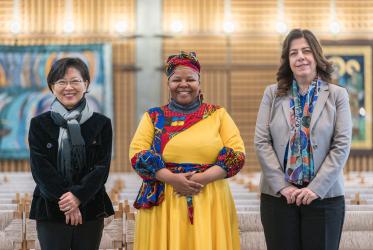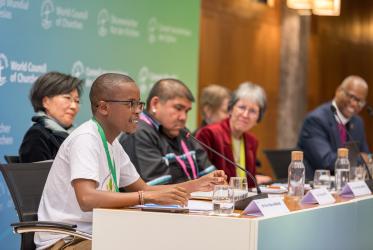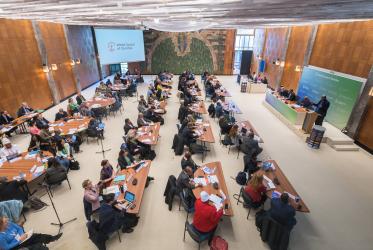Reflections from GETI 2022
The Global Ecumenical Theological Institute (GETI) of 2022 was an intercultural, short-term, academic study and exposure programme. It was a six-week blended learning experience - four weeks online and two weeks in residence alongside the 11th WCC Assembly in Karlsruhe, Germany, from 28 August to 8 September 2022. The programme was designed to explore the theme, “Christ’s Love (Re)moves Borders”.
The tapestry that ensues in this volume brings together the keynote contributions of plenary speakers with the interventions and perspectives of GETI 2022 students in an intergenerational and interdisciplinary theological discussion grounded in scripture and in Christ’s love.
11 April 2024












